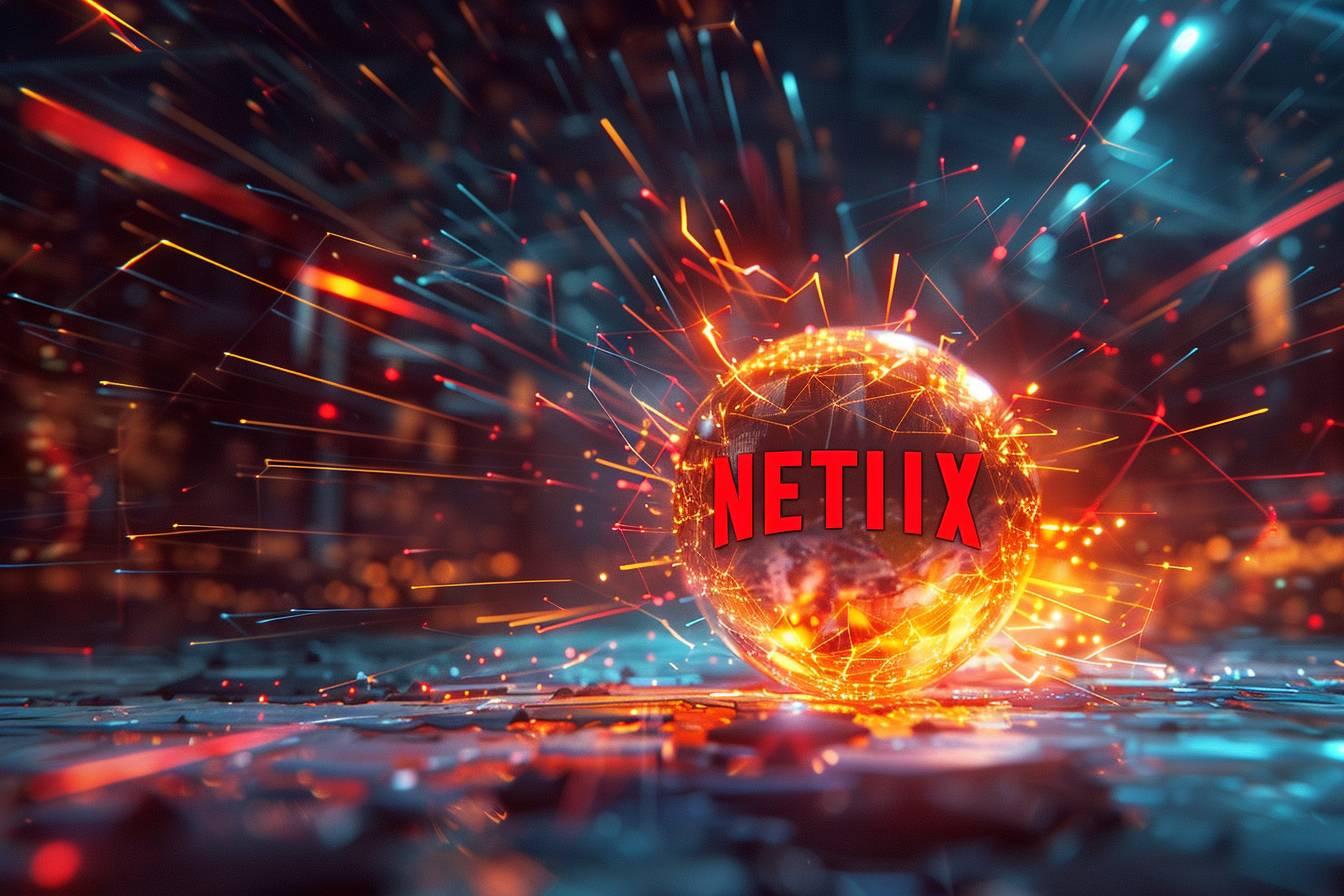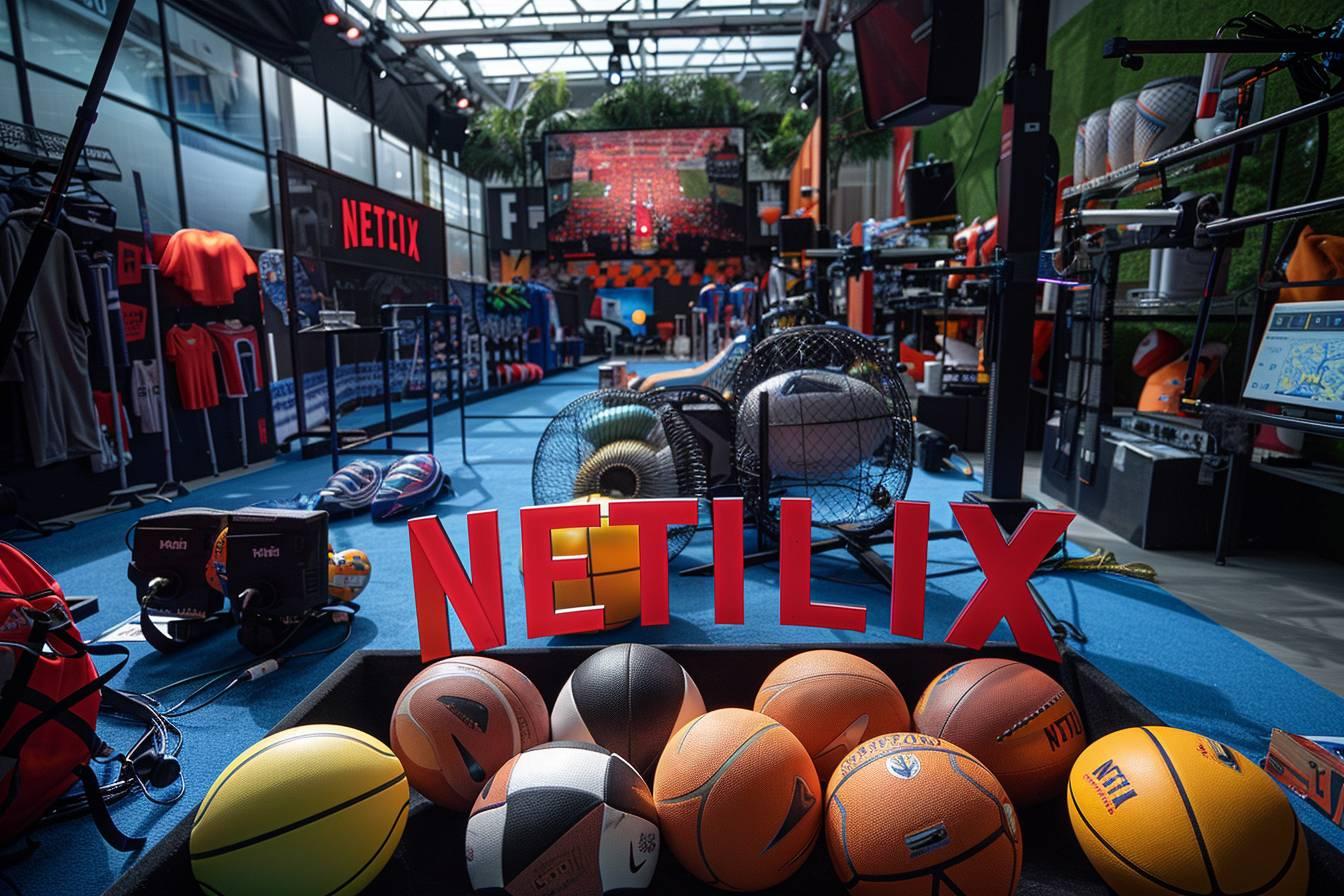Streaming giant Netflix is entering the live sports arena. This marks a major strategic shift for the platform, which now boasts 260 million subscribers. After long focusing on series, films and documentaries, Netflix is venturing into the fast-paced world of real-time sports broadcasts. Let’s take a closer look at this bold new direction and its implications for the future of online sports entertainment.
Live sports, Netflix’s new Eldorado
Netflix has long resisted the call of live sports, preferring to focus on sports documentaries such as those devoted to Formula 1 or the Tour de France. However, the platform has finally decided to take the plunge, seeing sports broadcasts as a promising growth driver. This decision comes at a time when Netflix’s expansion is slowing down in the United States and the streaming market is stabilizing after the boom caused by the pandemic.
Netflix’s entry into the live sports arena takes the form of several bold initiatives:
- An agreement with the NFL to broadcast American soccer games at Christmas 2023 and beyond
- A 10-year, $5 billion partnership with the WWE to broadcast wrestling matches from 2025 onwards
- The organization of the “Netflix Cup”, an innovative golf tournament combining F1 drivers and professional golfers
These strategic moves demonstrate Netflix’s desire to diversify its offering and captivate audiences eager for real-time thrills. The platform hopes to generate substantial advertising revenues, while retaining existing subscribers and attracting new viewers with a passion for sports.
Netflix creates its own sporting events
Rather than simply acquiring existing broadcasting rights, Netflix is taking an innovative approach by creating its own sporting events. This strategy enables it to stand out in the highly competitive and expensive sports rights market. The “Netflix Cup” is a perfect example of this innovative approach, offering a unique concept that blends two popular sporting disciplines: Formula 1 and golf.
This approach has several advantages for Netflix:
- Total control over the format and production of the event
- Creation of exclusive and differentiating content
- Opportunity to capitalize on the stars of its sports documentaries
- Cost control compared to buying existing rights
By developing its own competitions, Netflix can offer its subscribers a unique experience, while retaining flexibility in its sports strategy. This approach could well inspire other streaming players in the future.

Sport shifts to streaming
Netflix’s entry into the live sports arena is part of a broader trend towards the migration of sports content to streaming platforms. Netflix’s competitors, such as Amazon, Apple TV+, Paramount+ and Peacock, have already acquired major sports rights, recognizing the potential of this type of content to attract and retain subscribers.
Here’s an overview of the main sports streaming players and their offerings:
| Platform | Major sports rights |
|---|---|
| Amazon Prime Video | NFL (Thursday Night Football), Premier League |
| Apple TV+ | Major League Soccer, MLB Friday Night Baseball |
| Paramount TV+ | UEFA Champions League, NFL |
| Peacock | Premier League, WWE |
| Netflix | NFL (selective matches), WWE (from 2025) |
This shift towards streaming represents a significant change in sports consumption. Viewers are becoming increasingly accustomed to watching their favorite sporting events online, appreciating the flexibility and interactivity offered by these platforms. For Netflix, it’s an opportunity to capture part of this growing audience.
The challenges of live sport for Netflix
While Netflix’s entry into live sports is promising, it comes with a number of challenges. The platform’s executives have made it clear that they will only invest further in sport if they can find a way to monetize the broadcast rights. This caution is understandable, given the astronomical costs associated with major sports rights.
Among the major challenges facing Netflix are:
- fierce competition for sports rights
- The need to develop technical expertise for live broadcasts
- Adapting its business model to integrate advertising during sporting events
- managing fans’ expectations in terms of broadcast quality and user experience
In addition, Netflix is seeking global rights to sporting events, an approach that runs counter to the usual practice of sports leagues negotiating on a country-by-country basis. This strategy could prove complex to implement, but if successful, it could give Netflix a significant competitive edge in the global sports streaming market.
Ultimately, Netflix’s foray into live sports represents a bold but potentially lucrative gamble. By combining its massive subscriber base, content production expertise and willingness to innovate, the platform could well redefine the future of online sports consumption. It remains to be seen how Netflix will manage to balance the high costs of sports rights with the need to maintain a viable long-term business model.


